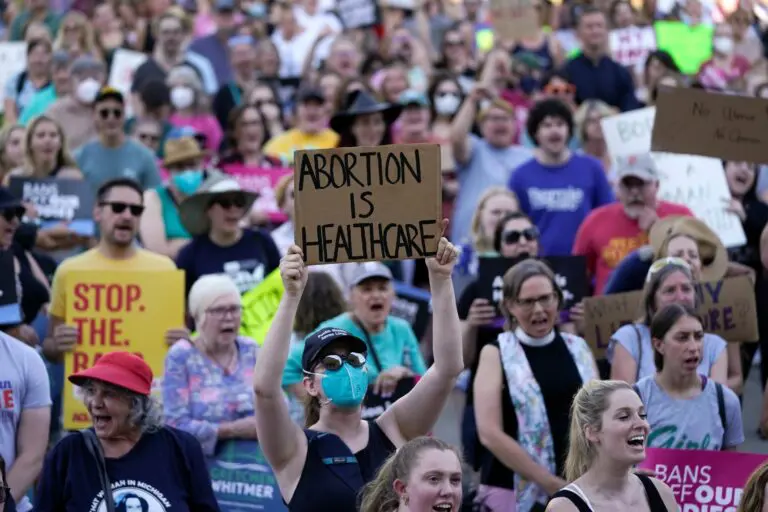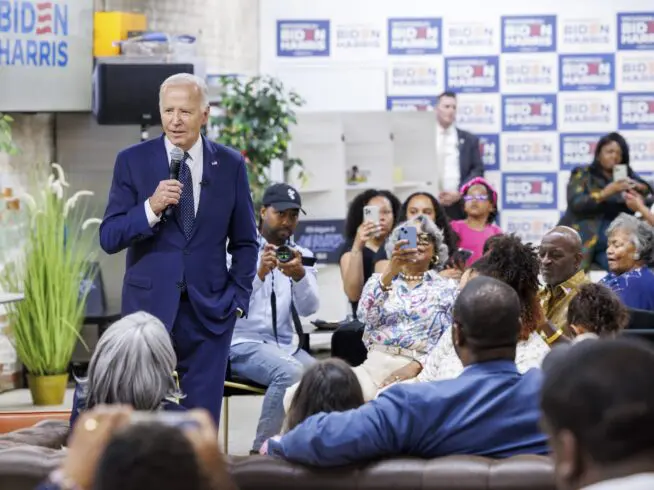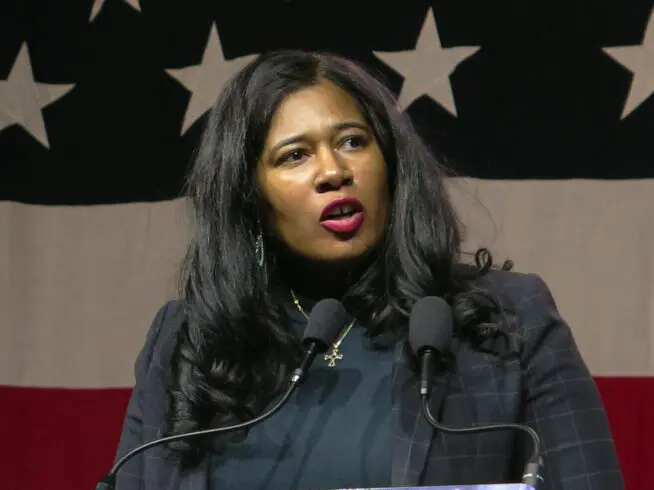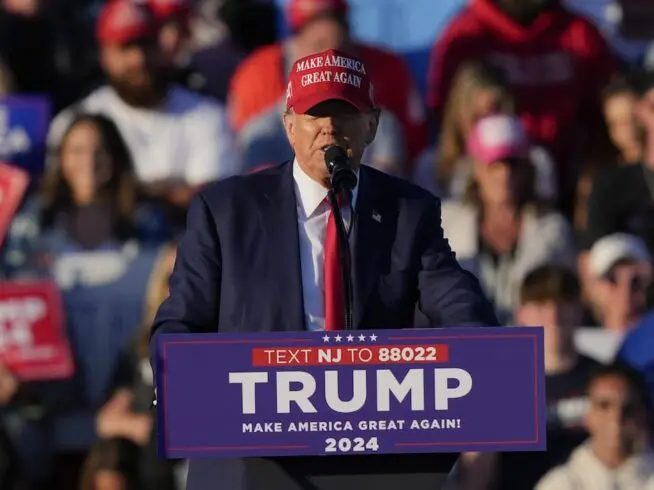Michigan doctor talks about the two years since the fall of Roe v. Wade
‘I’m scared that we’ll compromise, that we won’t insist on what’s right,’ said Dr. Sarah Wallett, the chief medical operating officer of Planned Parenthood of Michigan.

June 24 marks two years since the U.S. Supreme Court overturned Roe v. Wade and the constitutional right to abortion care with its ruling in Dobbs v. Jackson Women’s Health Organization.
Since the Dobbs ruling, voters in many states have taken matters into their own hands, gathering signatures on petitions to put abortion on the ballot and approving initiatives to expand or preserve the right to abortion. Fourteen states have instituted extremely restrictive abortion bans, and some have attempted to criminalize patients and providers for receiving or providing care.
In 2022, Michigan voters passed Proposition 3, a ballot measure that enshrined reproductive freedom in the state Constitution. A year later, Democratic Gov. Gretchen Whitmer signed the Reproductive Health Act, legislation that both repealed an antiquated abortion ban from 1931 and codified the right to abortion for all Michiganders.
Despite the many gains in the state, reproductive rights activists in Michigan are continuing to work for the removal of state-mandated restrictions on abortion. Regulations include a 24-hour waiting period; state-mandated counseling for patients; and a prohibition against advanced practice clinicians such as nurse practitioners, physician assistants, and nurse midwives performing surgical abortions.
The Michigan Independent asked Dr. Sarah Wallett, an obstetrician-gynecologist and the chief medical operating officer of Planned Parenthood of Michigan for her thoughts about the last two years. What were some of her greatest concerns, points of optimism, and what she might say to voters in her state, given the fact that abortion will play such a huge role in this year’s election?
The Michigan Independent has edited Wallett’s emailed responses for length and clarity.
What have you learned?
I’ve learned how resilient people are and the length to which people will go to obtain the future they want. They will travel hundreds of thousands of miles and spend their last dollars to protect that future. I’ve learned how incredibly important it is for people to have that option.
What has surprised you?
I WISH I was surprised by how quickly things have gotten hard for people. I wish I was surprised by how little some people care. It is easy for people to feel like it doesn’t matter — until they are the ones impacted. Reproductive freedom affects everyone.
The day after the mifepristone ruling, when we thought the EMTALA decision might be released, I felt so nauseous; I was feeling the physical manifestations of anxiety. I did not expect that. I’ve marked on my calendar the days when decisions could come out, the days when I’ll know whether I can continue taking care of my patients in the ways that they deserve.
What do you hope for?
I hope that eventually, we build something better than what we had before Dobbs, even under Roe. Because Roe was far from perfect, and it had still left the door open for politically-motivated laws that impacted how I was able to provide care. I hope that we won’t settle for what Roe was. You can’t compromise on people’s health care.
What scares you?
I’m scared that we’ll compromise, that we won’t insist on what’s right. That my 11-year-old daughter will have less rights than I had. That at some point, I will be forced to provide care that is unethical or forced to stop providing care altogether. That I might have to choose between the oath I took to care for my patients and keeping my family safe. I get choked up thinking about it. And my patients shouldn’t have to be scared walking through the door.
I had a patient who was sobbing, and I thought that maybe she was really conflicted about getting an abortion. So I provided the space for her to talk. Turns out, she wasn’t conflicted at all. She had traveled from a ban state and was terrified the state would find out and she would go to jail or face some other consequence. I assured her that it’s legal to travel; that abortion here in Michigan is legal; that she doesn’t have to tell anyone; and that if she had any complications, no one can tell if she had an abortion or miscarriage; and that it’s OK not to tell her future doctors.
What would you say to folks still on the fence about the upcoming election regarding Roe?
Politicians didn’t go to medical school. None of them should be able to weigh in on how people and providers care for their health. It is clear that some politicians want to put more barriers in place. I really want to tell them to get the hell out of my exam room.
This election will likely determine if continued interference in people’s reproductive health decisions is acceptable and if anti-abortion activists and politicians can drag us into the deep hole that Dobbs left — or if we’re going to turn things around and go in another direction, one in which people are empowered and supported in making the sexual and reproductive health care decisions that are best for their bodies, families, and futures.
Living in Michigan, where we’ve made so much progress to protect and expand the right to an abortion, it might be easy to think that we’re untouchable. We put in the work. We are good. But something could happen at the federal level that would supersede all that we’ve worked to build at the state level these past two years. So these elections matter. We’re not safe. If other states pass more bans, more people will be forced to find that care elsewhere in states like Michigan. After the Dobbs decision, the number of out-of-state patients we’ve cared for has tripled, which has caused delays in care for Michiganders. It’s a cascading domino effect.




